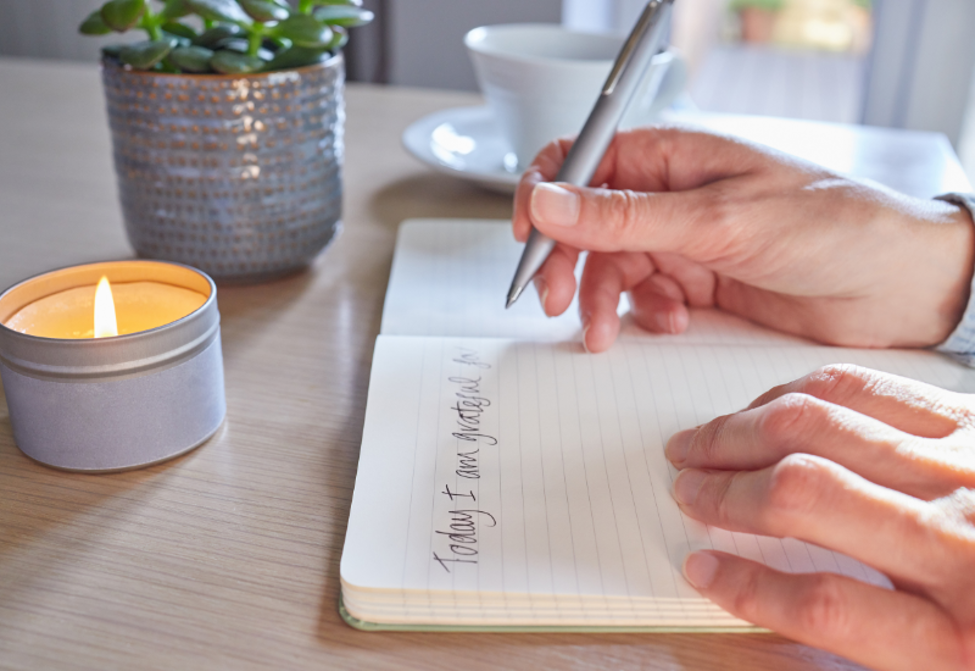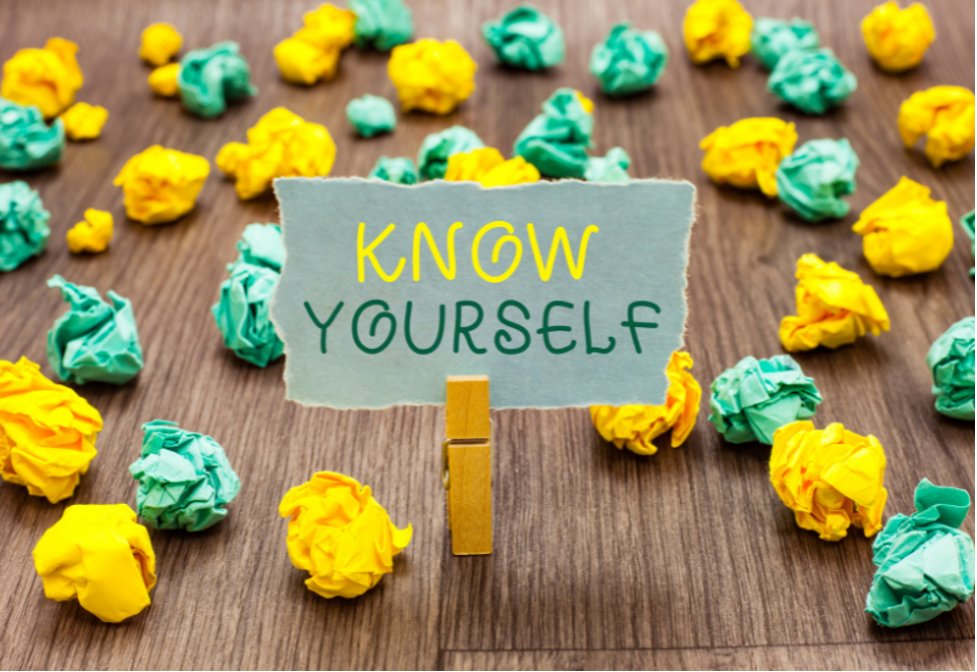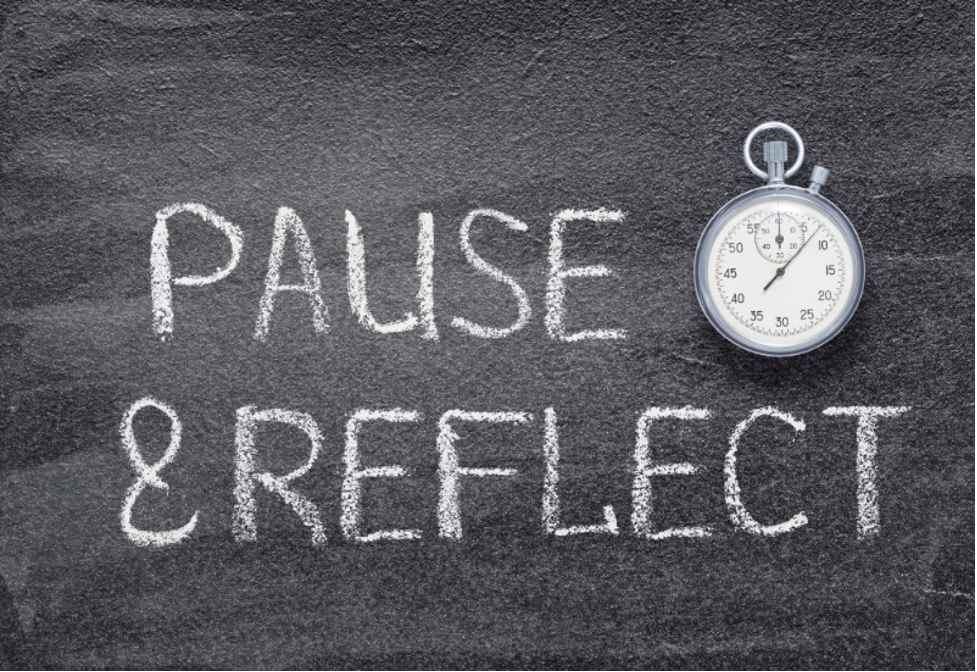
Empower Self-Discovery with Journaling Prompts for Mental Clarity
- January 2, 2024
- Mental Wellness Tips
- 0 Comments
Life can get pretty hectic, right? Trying to find those moments to chill and really think about yourself can be a real puzzle. But guess what? There’s a cool tool that people often ignore, and it can seriously shake up your self-discovery game – Journaling Prompts.
Table of Contents
In this article, Mental Map Guide will help you explore how these prompts can become your compass to navigate the seas of your thoughts and emotions, unlocking a realm of mental clarity.
What are Journaling Prompts?
Have you ever thought about journaling prompts? They’re like cool questions, ideas, or suggestions to jazz up your journaling game. They can be about everything – your day, wild experience, or what’s happening in your head and heart. Answer these prompts isn’t just writing; it’s a journey into your imagination and discovering all these cool things about yourself. For example, your dream, what scares you, and what you’re shooting for in life.
Imagine this: sitting down with your journal, pen in hand, and pondering the prompt, “If you have a conversation with your past self, what advice would you give?” Now, it’s not just writing about your day; you’re thinking about questions you’ve learned and the wisdom you’d share with you from when.
In other words, journaling prompts are your creativity wingman, sparking ideas you didn’t know were hanging out in your head.

5 Benefits of Journaling Prompts
Beyond the simple act of writing, there are many advantages of journaling prompts, but the Mental Map Guide will summarize the five most important ones that allow you to discover yourself and enhance your mental well-being.
#1. Stress Reduction and Relaxation
Have you ever felt like your mind’s a pressure cooker, ready to explode with all the stress bubbling inside? Yeah, me too. That’s where journaling comes in. You pour all that worry and frustration onto the page, and suddenly, your mind feels lighter, clearer, like you can breathe again.
According to research on NCBI, journaling can help people control and minimize their feelings of anxiety and depression. So, write down all your worries, even your silly daydreams. No judgments, no rules, just you and your pen having a heart-to-heart on paper. You’ll be amazed at how much more relaxed you feel after you let all of it out as you focus on releasing pent-up stress on the paper.
#2. Improved Problem and Decision-Making
Writing about difficulties, challenges, and dilemmas using your journaling prompts can be a useful problem-solving tool. When you put pen to paper, it allows you to analyze your options clearly, leading to well-informed and rational decisions.
What’s more? Maintaining a journal can help you stay focused and motivated to achieve your goals. Because journaling prompts guide you in organizing your thoughts, helping you prioritize tasks and goals, you can clearly understand what truly matters to you.

#3. Explore New Ideas and Boost Your Creativity
Prompts can be a great way to push yourself, think outside the box, step out of your comfort zone, and explore more ideas. For example, let’s say the prompt is something like “Write a story where your pet is a hero.” Suddenly, your goldfish becomes the next superhero, saving the day from a cat invasion. It sounds bonkers, but they take you on unexpected trips, turning ordinary into the extraordinary.
So, it’s not just about stories; it’s about flexing your creative muscles for everything from poems to tunes. Over time, this journey enhances your creativity, making it a valuable tool for you to come up with new ideas or for anyone seeking to infuse more innovation into their daily lives.
#4. Improve Self-Reflection
Journaling prompts are like these cool mirrors that make you really think about your inner stuff. You know, they ask you questions that dig deep into your thoughts and feelings. It’s pretty wild how just responding to those prompts can help you understand your beliefs, values, and what you want. It’s like building a stronger connection with the real you.
And being more aware of yourself sets you up for serious personal growth. You start figuring out what went down and what’s coming up next. Moreover, researchers show that journaling can do this thing called “cognitive defusion.” It means you look at your thoughts instead of getting stuck in them. This trick helps you accept your emotions and commit to making the necessary changes.
#5. Overall Well-being Recovery
Journaling prompts are like personal mind GPS, navigating through feelings and thoughts. They give you a roadmap to self-discovery – digging into fears, dreams, and goals. It’s like therapy on paper, a chill way to unload stress and keep your head straight.
According to studies, journaling, especially expressive writing, may be beneficial for those recovering from post-traumatic stress disorder (PTSD). These prompts help you set and reach goals. Making journaling prompts a habit is like having an ongoing chat with yourself, shaping your growth, and keeping your well-being on the up and up. Therefore, people in recovery can navigate the emotional landscape, fostering healing and resilience.
How To Incorporating Journaling Prompts into Your Routine
#1. Set A Consistent Time
First off, pick a daily slot that suits you. Maybe kick off your day with it, channeling those morning vibes after your cup of coffee to set intentions. Or you can wind down in the evening after dinner, reflecting on your day’s emotions and experiences.
What’s the secret? Consistency. Make it daily, like brushing your teeth or checking your phone. Creating this routine transforms journaling from a task into a habit. The more you engage, the deeper your self-discovery and mental clarity will get.
#2. Writing in a Relaxing Environment
Find a quiet, private, and comfortable place for your journaling sessions where you can focus without distractions. This could be a cozy corner, a favorite coffee shop, or a park bench. This creates an environment for you to freely express your thoughts without fear of judgment, fostering authenticity and honesty in your reflections.

#3. Explore and Select Appropriate Prompts
You can find prompts online, in books, or create your own. Experiment with different types of journaling prompts to keep the process fresh and engaging. From gratitude prompts to future-focus queries, variety ensures a holistic approach to self-discovery. Start with open-ended questions that encourage self-reflection. For example:
- What am I grateful for today?
- What challenges did I face, and how can I overcome them?
5 Best Journaling Prompts for Self-Discovery and Mental Clarity
#1. Future Self Reflection
Imagine yourself 5 years from now. Where can you see yourself in the next 5 years? What does your ideal look like? What are you doing, who are you living with and how do you feel? Explore the details and emotions of this future self to gain ínights into your long-term goals and aspirations.

#2. Gratitude Discovery
List 5 things that you are grateful for today, and then dive deeper into why you appreciate each one. Gratitude can shift your focus to positive aspects of your life, fostering a sense of contentment and mental well-being.
#3. Peak and Pit of the Day
After a hard day of work, reflect on your day’s high point (peak) and low point (pit). Explore the emotions, circumstances, and lessons associated with each. This practice helps you become more aware of patterns in your daily life and emotional responses. Understanding these moments can provide insights into your values, triggers, and areas of personal growth.
#4. Reflect on Your Values
List the top 5 values in life (honesty, creativity, compassion). What are the core values that guide your life? Consider aspects like relationship work and personal growth. This exercise helps you clarify what truly matters to you and guides decision-making.

#5. Embracing Change
Describe a significant change in your life. How did you initially react to it, and how do you feel about it now? Explore the lessons learned and the personal growth that may have resulted from navigating this change.
Conclusion
Forget fancy therapy sessions, journaling prompts are your secret weapon for self-discovery and brain-clearing power. They are like a map of your inner world, helping you navigate your thoughts and feelings.
Let’s dive into the world of transformative journaling prompts at mentalmapguide.com and start your happy journaling now!






